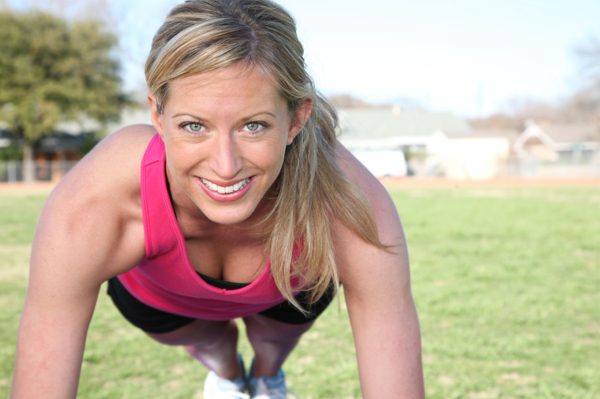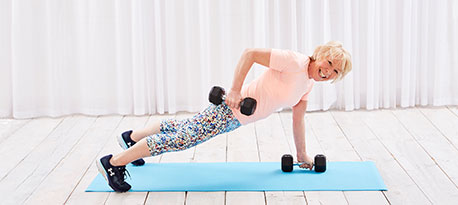People come to us at Annie Deadman Training for weight-loss, exercise and health advice. It’s what we do. We build up a rapport and they feel they can ask and tell us anything. Absolutely anything. And they do. We hear it all. What they ate, what they drank, what they would have preferred to eat and drink, details of their period pains, menopause, hormones, hospital appointments, menstruation irregularities, constipation, colour of their poo, sexual encounters, dating disasters, size of thighs/arms/bottom, ‘does this pair of trousers suit me’ and even as blunt as ‘I’ve got a hot date in two weeks’ time and I want to look sizzling’.
The works.
 With most of them well into their late thirties and upwards, they have left their awkward teens and adolescent years behind them and many have produced babies… (surely one of the most undignified times of our lives)… so it can therefore be tricky for us as parents to remember what a sensitive subject weight gain and obesity can be for school age children.
With most of them well into their late thirties and upwards, they have left their awkward teens and adolescent years behind them and many have produced babies… (surely one of the most undignified times of our lives)… so it can therefore be tricky for us as parents to remember what a sensitive subject weight gain and obesity can be for school age children.
What do we do? Do we talk about it, ignore it? Leave healthy eating leaflets in their school bag? Join chat rooms, forums, the queue at the GP, stalk netmums, ban biscuits, invite skinny children for tea? What?
Getting it wrong can mean one step forward one day, ten steps backward the next and a whole lot of door slamming in between.
To this day, I can still remember my mother getting it spectacularly wrong. In my University holidays, I used to work in a kitchen at a private hospital. Yes, there were chips. A lot of chips. I ate them and my trousers got tighter and tighter. One day Mum, having observed this expansion with some horror (she, I might add, never moved and was a size 18 and counting), the temptation got too much for her and she decided to broach the subject. She took the ‘dive in with both feet and blurt it out‘ option.
“My God, you’re getting fat’, she spat, “Just look at those trousers, you’re bursting out of them”, and she prodded and poked my ample thighs as if I had any doubt where the offending area was.
I was 22 then. I am now 57 and I have never forgotten it. Never.
So what has promoted me to bring up this weighty subject now? This is why. I bumped into an old colleague last week in a coffee shop. It was quite early in the morning and she was sitting with her teenage daughter on a squidgy sofa. I got my takeaway and went over to say hello. The mother then proceeded to give me (I hadn’t seen her for two years, and only met the daughter once) an account of the doctor’s appointment her child had just had, the upshot, why they’d been, the symptoms and what the diagnosis was. PCOS (polycystic ovarian syndrome) as it turned out.
My toes were curling at the mother’s insensitivity. There then followed a long conversation about healthy eating, food weaknesses, exercise, lack of motivation… and still the daughter sat there. Cringing. I looked the poor girl in the eyes and asked:
“Is this something you want for you? Or does your Mum want it for you?”
Of course the answer was “Mum”, with a roll of her near-watering eyes. At her tender age, is she really going to agree with anything a parent wants? The hell she is.
So how do we approach the subject? Or do we approach the subject at all? You may take what you like from the following pointers, they cross all age groups. It is you, and only you, who know your child better than anyone. I may be stating the obvious but I’m working on the basis that their media obsessed world is so different from ours and any help or reminders are valuable.
My credentials? I was a large child at primary school and I am mother to two daughters who are thoroughly enjoying their twenties and have chosen a lifestyle which is big on fun and small on exercise. Their choice of course. I leave them to it.
Ok here we go:
- Talk. And listen. Obvious I know, but both are important. Don’t try to gloss over anything. A great way to open discussions (about anything) is a long car ride. You’re both facing forward, no eye contact. You can curse about the traffic, they can plug into their phones if it all gets too heavy.
- Discuss what a diet is. A diet is a nutritional daily plan. It’s not just a fat loss plan sports men and women follow a diet, little Jonny in their class has a nut-free diet, your friend is coeliac and therefore needs a gluten-free diet.
- Find out (gradually) what they and their friends talk about at school. Do they notice clothes, make up, what people look like? Do they discuss the appearance of their peers, who’s tall, short, wide, narrow?
- One thing parents learn eventually is that forcing/encouraging/nagging a child to do something is a surefire way to press the wrong button. So if you’d like them to start some exercise, then you need to pave the way and get out and do it too. With the minimum of fuss. Something like:
“See you in 20 minutes everyone, just off for a run”…
You can hide at the end of the road and have a fag if you like but at least set an example. Don’t look him/her in the eye when you say it. Just say…. and go. Suggesting your overweight child joins you could be translated in their heads as:
“Oi fatty, you could do with moving a bit more, get your kit and get out there”.
- Common sense surely but worth a mention. Adopt a family healthy-eating policy. Again without drama. So not:
“Here go the Oreos into the bin… and the mini-Magnums… oh yes and out with the Friday night crisps… in with the broccoli”
Just don’t have them in the house. Say you forgot to buy them. Your chocoholic partner can always devour the fruit and nut in private (and hide the wrapper).
 Positive reinforcements in other areas are vital. An overweight child may have low self-esteem. You’re their rock. You’re unconditional love. But you’re also their punch bag. Brace yourself and stay positive but honest. Praise effort as well as results.
Positive reinforcements in other areas are vital. An overweight child may have low self-esteem. You’re their rock. You’re unconditional love. But you’re also their punch bag. Brace yourself and stay positive but honest. Praise effort as well as results.- Show respect, too, for your own body. Less, “God, I hate my inner thighs”, more, “I’m so proud – I knocked out 10 press ups at class this morning”. Strength and power and flexibility can be cherished and worked on. Anything which carries with it more pressure and social stigma (clothes size) may be able to fall into line later on.
The power of social media will play a part in how they view themselves and their peers, and there isn’t much we can do to control that, apart from keeping up the gentle chat and discussion. The best thing we can do as parents is to keep them liking who they are and becoming decent human beings. Self-love sounds a bit alternative. A bit eccentric. But it will help give them a stable and positive foundation. In ten seconds flat they can find any number of Instagram images of people who, in their mind, have it all. The body, the looks, the likes, the attention. All this can potentially rock any confidence you have built up.
Our children want our love and support at all times, don’t they? They sometimes just don’t always know that.
Have a lovely day. Annie x

 Positive reinforcements in other areas are vital. An overweight child may have low self-esteem. You’re their rock. You’re unconditional love. But you’re also their punch bag. Brace yourself and stay positive but honest. Praise effort as well as results.
Positive reinforcements in other areas are vital. An overweight child may have low self-esteem. You’re their rock. You’re unconditional love. But you’re also their punch bag. Brace yourself and stay positive but honest. Praise effort as well as results.
